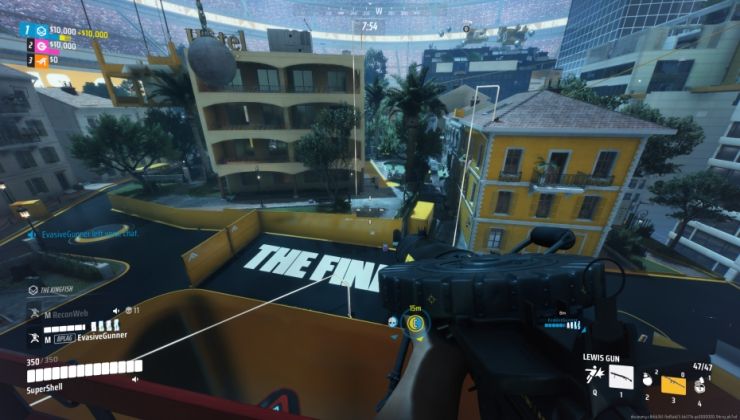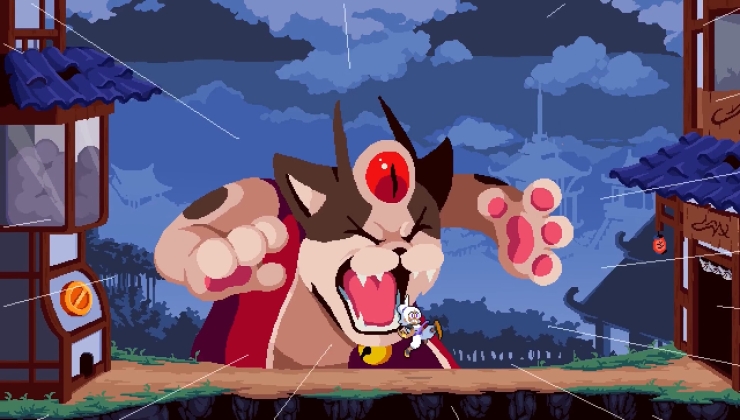European Consumer Organization (BEUC) has called on the European Commission to deal with various game publishers, that the BEUC claim are breaching EU consumer protection laws.
The action named "Game OVER", was announced September 12th, in partnership with member organisations from 17 countries. Taking aim at Activision Blizzard, Electronic Arts, Epic Games, Mojang Studios, Roblox Corporation, Supercell and Ubisoft.
What's the issue then? They identified these areas of concern:
- Consumers cannot see the real cost of digital items, leading to overspending: the lack of price transparency of premium in-game currencies and the need to buy extra currency in bundles pushes consumers to spend more.
- Companies’ claims that gamers prefer in-game premium currencies are wrong.
- Consumers are often denied their rights when using premium in-game currencies, tied to unfair terms favouring game developers.
- Children are even more vulnerable to these manipulative tactics. Data shows that children in Europe are spending on average €39 per month on in-game purchases. While they are among the ones playing the most, they have limited financial literacy and are easily swayed by virtual currencies.
From the press release: Agustín Reyna, Director General of BEUC, commented:
"The online world brings new challenges for consumer protection, and it shouldn’t be a place where companies bend the rules to increase profits. BEUC’s members have identified numerous cases where gamers are misled into spending money. Regulators must act, making it clear that even though the gaming world is virtual, it still needs to abide by real-world rules.”
“Gamers shouldn’t need to rely on a calculator anytime they want to make an informed decision on how much they want to spend. The money they spend should be displayed in real money and deceptive practices must be stopped.”
“Today, premium in-game currencies are purposefully tricking consumers and take a big toll on children. Companies are well aware of children’s vulnerability and use tricks to lure younger consumers into spending more.”
Video Games Europe, a trade body that represents 19 European and international video game companies and 13 national trade associations put out their own press release statement on it that notes:
"The purchase of in-game currencies is a well-established practice, and well understood by players. Our members always respect European consumer laws in how they offer these purchases.
Our industry offers a wide range of games that enable players to access a huge variety of genres and innovative new experiences across different services. Players can experience entire games without spending any money, giving them the opportunity to try games without any upfront cost or commitment.
Video Games Europe and its members support and promote fair and transparent principles for purchases of in-game content, including for in-game currency. The PEGI Code of Conduct requires developers to ensure that the real-world cost is clear and unambiguous at the point of purchase of the in-game currency."
This is going to be an interesting fight.
Over to your in the comments, what are your thoughts?
Over to your in the comments, what are your thoughts?
Good!
Data shows that children in Europe are spending on average €39 per month on in-game purchases.Good lord, I never even got close to being given that much pocket-money in a month when I was a kid!
I never even got close to being given that much pocket-money in a month when I was a kid!Don't forget inflation. Non-existing things have become a lot more expansive than they used to be.
Last edited by pb on 13 Sep 2024 at 5:47 pm UTC
And from that point alone, they stretch it out into buzz-words about "Companies manipulating children to spend money", as if having a (trivial) conversion step was the root of the issue.
"Shouldn't need a calculator" as if the conversion ratio wasn't absolutely trivial.Is it, though, when every pack of (let's call them) gems uses a different ratio and you spend those gems piecemeal at a different time in a different interface that only shows you the cost in gems?
1,000 gems for 7,99$
2,500 gems for 12,99$
5,000 gems for 17,45$
20,000 gems for 39,87$
10 free gems every week if you log in daily
1 common skin for 250 gems = ??$
1 rare skin for 700 gems = ???$
"Shouldn't need a calculator" as if the conversion ratio wasn't absolutely trivial.
And from that point alone, they stretch it out into buzz-words about "Companies manipulating children to spend money", as if having a (trivial) conversion step was the root of the issue.
The conversion itself may be trivial, but I can relate to the psychological impact, and that there is some level of obfuscation here.
Let's say I unlock an episode on Webtoons.com. From memory, I know that a fast pass ticket is 7 coins. I know that I usually buy coins in batches of 100+8. But I don't know from memory what they cost. Upon looking it up it is 9.99 USD for the 100+8 package. So, how much will that be in Euro again, and will there be a VAT added? Only when actually trying to purchase I see the "11.99 EUR" figure.
So... a fast pass episode costs about one Euro. If it would be stated like that, I would definitely be less inclined to buy, and more inclined to wait for the free unlock. I simply don't do the calculation every time I unlock a episode, just unconsciously. And I'm not some child for whom multiplication / quick guesstimates are new.
Plus, once you've already converted realmmone into platform bound virtual currency, you're effectively encouraged to actually spend it. Same like that regret purchase at duty free just because there was some foreign currency left.
So, if I as an adult with math heavy academic education can say that the obfuscating and spending-encouraging effects work on me upon reflection of my spending behavior, how should it affect children?
Last edited by Klaus on 13 Sep 2024 at 6:41 pm UTC
Don't forget inflation. Non-existing things have become a lot more expansive than they used to be.Honestly, I dread to think about the inflation-adjusted price of the notorious horse-armour that started this slippery slope.
Good lord, I never even got close to being given that much pocket-money in a month when I was a kid!My guess is a lot of kids are f2p and there is one kid who figures out how to do IAP and spends an unhealthy amount of money.
Last edited by mr-victory on 13 Sep 2024 at 7:39 pm UTC
"Shouldn't need a calculator" as if the conversion ratio wasn't absolutely trivial.This reeks of "I get it and it's easy for me therefore it's not a problem" level of thinking. No, it's not trivial. Every game on this is completely different. We shouldn't have to get a calculator out every time.
And from that point alone, they stretch it out into buzz-words about "Companies manipulating children to spend money", as if having a (trivial) conversion step was the root of the issue.

In-game currency is pretty much modern [company scrip](https://en.wikipedia.org/wiki/Company_scrip).
These at least have collectible value and won't vanish into thin air when the company goes bust.
That's because, back in your day, you'd have some money that you'd be given or save up, and you'd spend a fixed amount of that in exchange for specific goods at the toy shop or sweet shop or wherever. You wouldn't have had invisible obfuscated access to your parents' credit cards for ephemera.Data shows that children in Europe are spending on average €39 per month on in-game purchases.Good lord, I never even got close to being given that much pocket-money in a month when I was a kid!That's a lot to spend on items that don't exist!
That's because, back in your day, you'd have some money that you'd be given or save up, and you'd spend a fixed amount of that in exchange for specific goods at the toy shop or sweet shop or wherever. You wouldn't have had invisible obfuscated access to your parents' credit cards for ephemera.Data shows that children in Europe are spending on average €39 per month on in-game purchases.Good lord, I never even got close to being given that much pocket-money in a month when I was a kid!That's a lot to spend on items that don't exist!
And you would get toys for birthday and not google/roblox/minecraft/whatever giftcard...
Well, on the plus side, less landfill I guess?That's because, back in your day, you'd have some money that you'd be given or save up, and you'd spend a fixed amount of that in exchange for specific goods at the toy shop or sweet shop or wherever. You wouldn't have had invisible obfuscated access to your parents' credit cards for ephemera.Data shows that children in Europe are spending on average €39 per month on in-game purchases.Good lord, I never even got close to being given that much pocket-money in a month when I was a kid!That's a lot to spend on items that don't exist!
And you would get toys for birthday and not google/roblox/minecraft/whatever giftcard...









 How to set, change and reset your SteamOS / Steam Deck desktop sudo password
How to set, change and reset your SteamOS / Steam Deck desktop sudo password How to set up Decky Loader on Steam Deck / SteamOS for easy plugins
How to set up Decky Loader on Steam Deck / SteamOS for easy plugins
See more from me